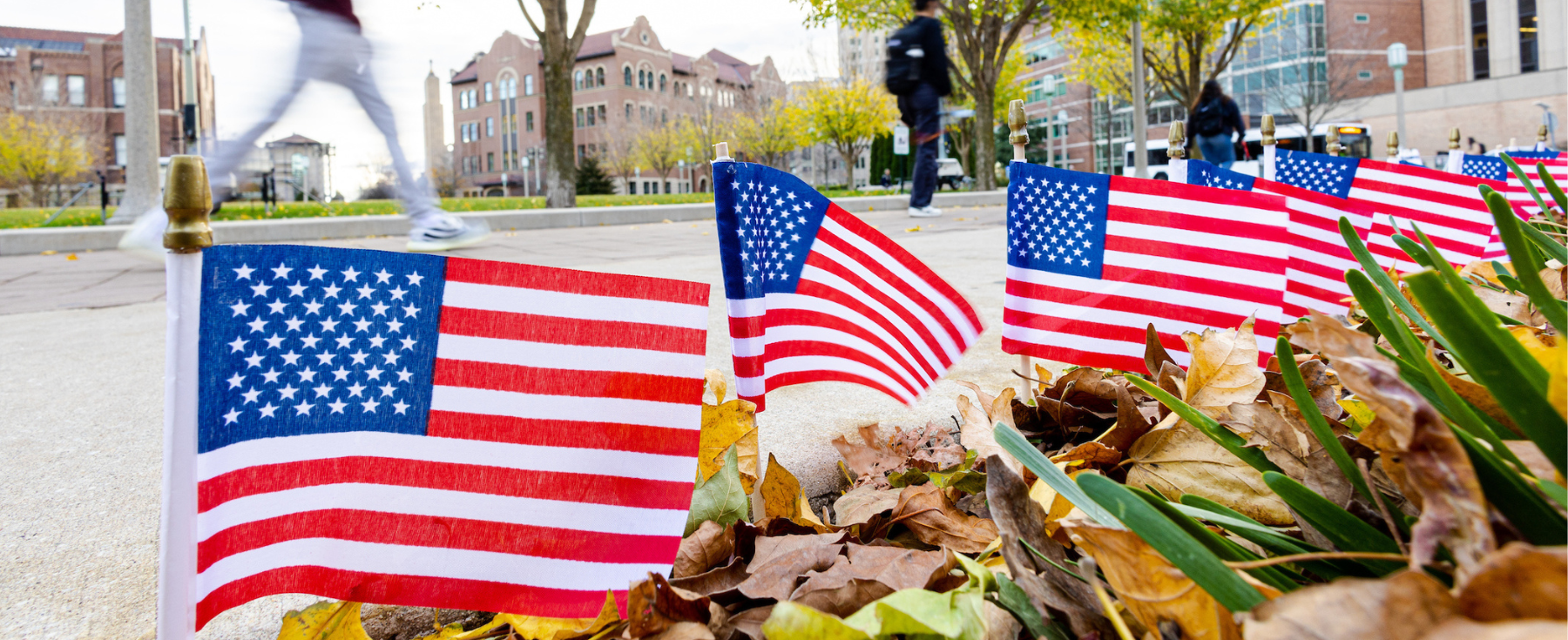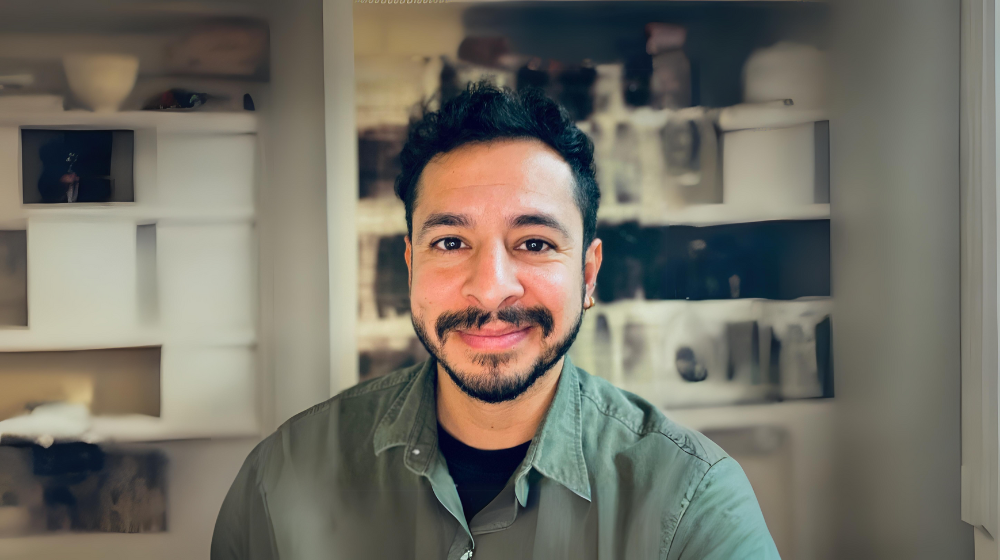
A Veteran's Passion for Education and Service
A Marine's Journey at Loyola
Marine Corps Veteran Jesus Ramos Pursues Passion for Education and Service at Loyola
For Jesus Ramos (School Psychology PhD, ’23), education and service have always been central to his value system. As a Marine Corps Veteran with a background in psychology and a passion for mentorship, Ramos found a natural home in Loyola’s School Psychology PhD program, which has allowed him to lay a foundation for a career that builds on his passions. We sat down with Ramos to discuss his military background, academic interests, and the community and support he found as a Veteran student at Loyola:

School Psychology EdD
Jesus Ramos
Veteran Jesus Ramos has always been called to service. Whether through the Marines or his future career in school psychology, he feels inspired to help people believe they are capable of anything they put their minds to.
Learn about the School Psychology ProgramWhat made you decide to pursue a PhD in School Psychology at Loyola?
When you join any military branch, a lot of the younger kids that transition in right out of high school see it as this rough and tough type physical thing, but they forget that there's also a lot of intense schooling involved. Part of our job as officers is to mentor them and build them up to get their job done. Not only that, but we’re also mentoring them in all of life. Their finances, their relationships, personal growth, goals, coping strategies, everything.
I really, really enjoyed that part of the job, and that led me to eventually look into educational psychology. I had a buddy who was living in Chicago at the time who recommended Loyola. As I looked into the program, I saw it had a great reputation and hit a lot of the major markers of what I wanted out of a program. I was able to get my master's and PhD through one program without needing to bounce around or reapply. The social justice piece was really important to me as well because of my experiences mentoring other Hispanics in the military.
What was your dissertation on?
I wanted to understand how aware students from minoritized backgrounds are of the dominant narratives we internalize and integrate as a society from social media, movies, and things of that nature. One easy example that I point to is in movies. Who is the Hispanic actor playing most often? The gangster, the drug dealer, the bad guy. My research showed that if we can expose and disrupt those internalized feelings and ideas, it can help students to feel inspired and to believe they’re capable of being and doing more.
"I wanted to understand how aware students from minoritized backgrounds are of the dominant narratives we internalize and integrate as a society from social media, movies, and things of that nature." Jesus Ramos
How would you describe the support you received as a Veteran at Loyola?
Loyola’s Veterans’ office, and especially [Director of Military Veteran Student Services] Alex Pirila, were really supportive. Alex would meet with me and say, let’s figure out the GI Bill. This is what you need to do, this is what you’re missing, this is who you can call. He poured so much effort, time, and resources into supporting me.
Also, Loyola's program was very, very flexible. They really worked with me to make sure I was able to get all the different experiences I wanted and to set me up for a career. Even though it's a school psychology program, they helped set me up for research, teaching, private practice, everything. I'm really thankful to the program for doing that.
What advice would you have for other Veterans considering Loyola?
Really take advantage of all the resources that are available. Ask questions to figure out what's out there and what's available to you. Grad school is tough, but having a support system with some loved ones around is so helpful, and so is keeping up with your mental and physical health.
Learn more about Loyola University Chicago’s Military Veteran Student Services (MVSS) commitment to creating an inclusive and supportive culture for our Veterans and military-affiliated students.
For Jesus Ramos (School Psychology PhD, ’23), education and service have always been central to his value system. As a Marine Corps Veteran with a background in psychology and a passion for mentorship, Ramos found a natural home in Loyola’s School Psychology PhD program, which has allowed him to lay a foundation for a career that builds on his passions. We sat down with Ramos to discuss his military background, academic interests, and the community and support he found as a Veteran student at Loyola:
What made you decide to pursue a PhD in School Psychology at Loyola?
When you join any military branch, a lot of the younger kids that transition in right out of high school see it as this rough and tough type physical thing, but they forget that there's also a lot of intense schooling involved. Part of our job as officers is to mentor them and build them up to get their job done. Not only that, but we’re also mentoring them in all of life. Their finances, their relationships, personal growth, goals, coping strategies, everything.
I really, really enjoyed that part of the job, and that led me to eventually look into educational psychology. I had a buddy who was living in Chicago at the time who recommended Loyola. As I looked into the program, I saw it had a great reputation and hit a lot of the major markers of what I wanted out of a program. I was able to get my master's and PhD through one program without needing to bounce around or reapply. The social justice piece was really important to me as well because of my experiences mentoring other Hispanics in the military.
What was your dissertation on?
I wanted to understand how aware students from minoritized backgrounds are of the dominant narratives we internalize and integrate as a society from social media, movies, and things of that nature. One easy example that I point to is in movies. Who is the Hispanic actor playing most often? The gangster, the drug dealer, the bad guy. My research showed that if we can expose and disrupt those internalized feelings and ideas, it can help students to feel inspired and to believe they’re capable of being and doing more.
How would you describe the support you received as a Veteran at Loyola?
Loyola’s Veterans’ office, and especially [Director of Military Veteran Student Services] Alex Pirila, were really supportive. Alex would meet with me and say, let’s figure out the GI Bill. This is what you need to do, this is what you’re missing, this is who you can call. He poured so much effort, time, and resources into supporting me.
Also, Loyola's program was very, very flexible. They really worked with me to make sure I was able to get all the different experiences I wanted and to set me up for a career. Even though it's a school psychology program, they helped set me up for research, teaching, private practice, everything. I'm really thankful to the program for doing that.
What advice would you have for other Veterans considering Loyola?
Really take advantage of all the resources that are available. Ask questions to figure out what's out there and what's available to you. Grad school is tough, but having a support system with some loved ones around is so helpful, and so is keeping up with your mental and physical health.
Learn more about Loyola University Chicago’s Military Veteran Student Services (MVSS) commitment to creating an inclusive and supportive culture for our Veterans and military-affiliated students.
